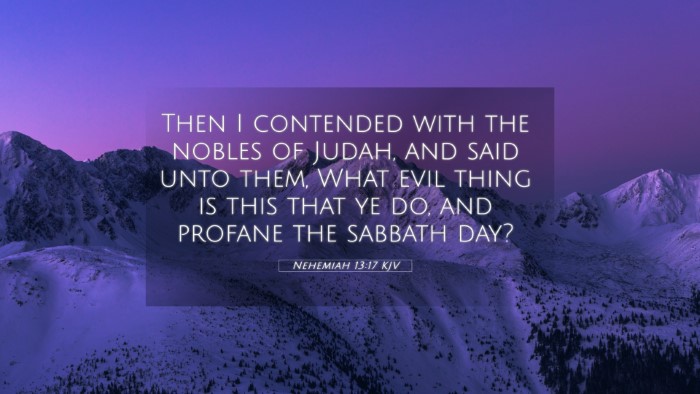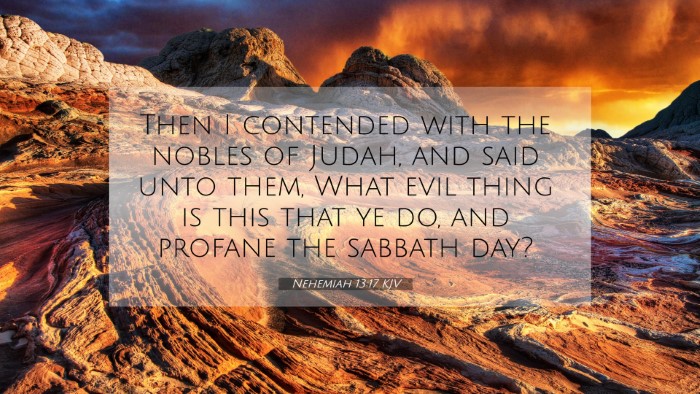This section features a detailed cross-reference designed to enrich your understanding of the Scriptures.
Below, you will find carefully selected verses that echo the themes and teachings related to Nehemiah 13:17 KJV. Click on any image to explore detailed analyses of related Bible verses and uncover deeper theological insights.
 Nehemiah 13:11 (KJV) »
Nehemiah 13:11 (KJV) »
Then contended I with the rulers, and said, Why is the house of God forsaken? And I gathered them together, and set them in their place.
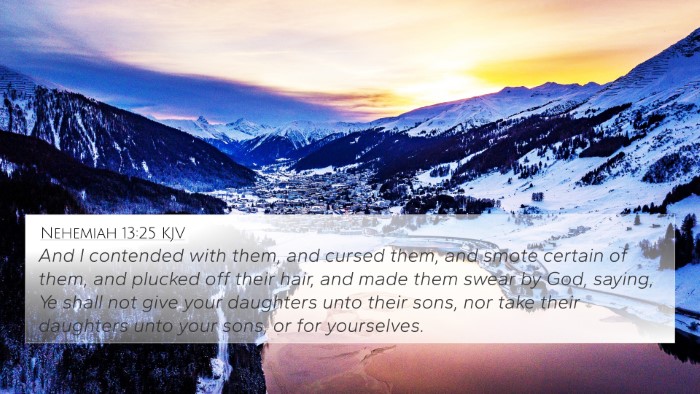 Nehemiah 13:25 (KJV) »
Nehemiah 13:25 (KJV) »
And I contended with them, and cursed them, and smote certain of them, and plucked off their hair, and made them swear by God, saying, Ye shall not give your daughters unto their sons, nor take their daughters unto your sons, or for yourselves.
 Micah 3:9 (KJV) »
Micah 3:9 (KJV) »
Hear this, I pray you, ye heads of the house of Jacob, and princes of the house of Israel, that abhor judgment, and pervert all equity.
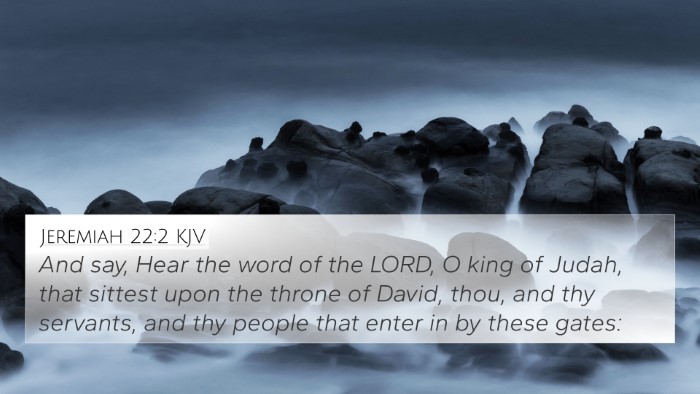 Jeremiah 22:2 (KJV) »
Jeremiah 22:2 (KJV) »
And say, Hear the word of the LORD, O king of Judah, that sittest upon the throne of David, thou, and thy servants, and thy people that enter in by these gates:
 Jeremiah 5:5 (KJV) »
Jeremiah 5:5 (KJV) »
I will get me unto the great men, and will speak unto them; for they have known the way of the LORD, and the judgment of their God: but these have altogether broken the yoke, and burst the bonds.
 Jeremiah 13:18 (KJV) »
Jeremiah 13:18 (KJV) »
Say unto the king and to the queen, Humble yourselves, sit down: for your principalities shall come down, even the crown of your glory.
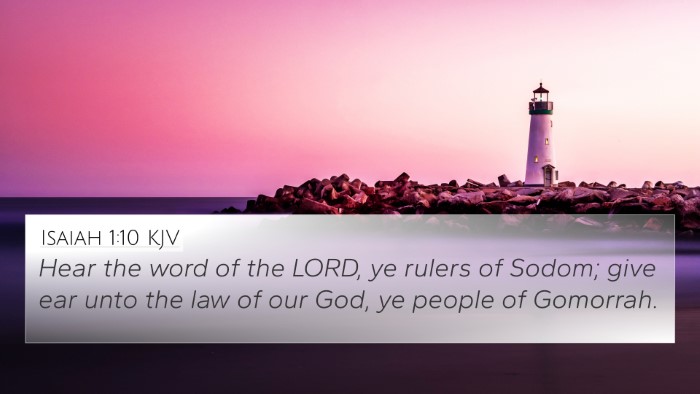 Isaiah 1:10 (KJV) »
Isaiah 1:10 (KJV) »
Hear the word of the LORD, ye rulers of Sodom; give ear unto the law of our God, ye people of Gomorrah.
 Proverbs 28:4 (KJV) »
Proverbs 28:4 (KJV) »
They that forsake the law praise the wicked: but such as keep the law contend with them.
 Nehemiah 5:7 (KJV) »
Nehemiah 5:7 (KJV) »
Then I consulted with myself, and I rebuked the nobles, and the rulers, and said unto them, Ye exact usury, every one of his brother. And I set a great assembly against them.
 Micah 3:1 (KJV) »
Micah 3:1 (KJV) »
And I said, Hear, I pray you, O heads of Jacob, and ye princes of the house of Israel; Is it not for you to know judgment?

